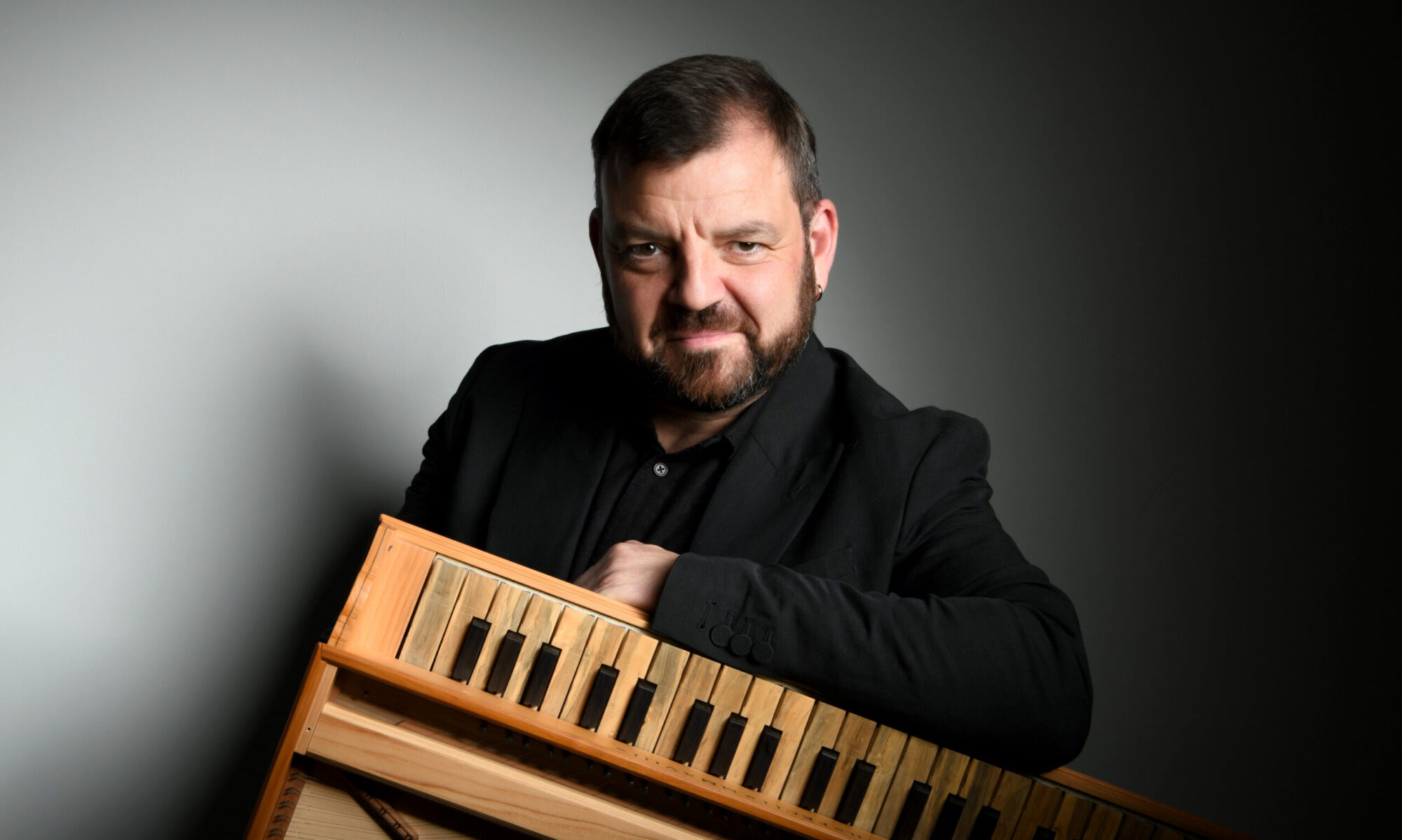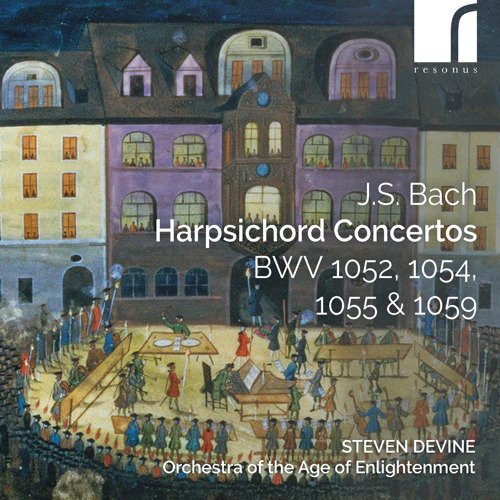Description
Orchestra of the Age of Enlightenment
Steven Devine (harpsichord & director)
Margaret Faultless & Kati Debretzeni – violins
Max Mandel – viola
Andrew Skidmore – cello
Christine Sticher – bass
Katharina Spreckelsen – oboe (BWV 1059)
The harpsichord concertos of J.S. Bach form the origins of the keyboard concerto genre that was to continue to flourish through the music of his sons, C.P.E. Bach and J.C. Bach, and onwards.
Here, celebrated keyboardist Steven Devine is joined by members of the Orchestra of the Age of Enlightenment in this recording that features the Concerto in D minor, BWV 1052, Concerto in A major BWV 1055, and the Concerto in D major BWV1054, together with a new reconstruction by Steven Devine of the Concerto in D minor BWV 1059.
Concerto in D minor, BWV 1052
1. Allegro
2. Adagio
3. Allegro
Concerto in A major, BWV 1055
4. Allegro
5. Larghetto
6. Allegro ma non tanto
Concerto in D major, BWV 1054
7. [Allegro]
8. Adagio e piano sempre
9. Allegro
Concerto in D minor (reconstr. Steven Devine), BWV 1059:
10. [Allegro]
11. [Adagio]
12. Presto
STEVEN DEVINE – HARPSICHORD
Steven Devine plays a double-manual
harpsichord by Colin Booth (2000) after a
single-manual by Johann Christof Fleischer
(Hamburg, 1710).
Pitch: a=415Hz
Tuning and harpsichord preparation by Edmund Pickering.
Recorded in St John’s Smith Square, London 1–3 March 2022
Producer & editor: Adam Binks
Engineer: Dave Rowell
Recorded at 24-bit/192 kHz resolution
Cover image: Collegium musicum in Jena 1744
Release date: 23 June 2023
“The most attractive aspect of this release is the free recreational sense of friends spending a Sunday evening together, getting high on caffeinated concertos.” — Gramophone Magazine, October 2023
“Steven Devine’s approach to ornamentation and improvisatory flourishes are exemplary, neatly combining exuberance with respect for the score. His subtle use of rhetoric adds to the sometimes almost relentless nature of Bach’s keyboard writing. His treatment of Bach’s little hiatuses and moments of repose is impeccable…The recording balance between the harpsichord and the other instruments is perfect,” Andrew Benson-Wilson
“These are vivid, vibrant performances and certainly the schmoozy, romantic Bach that can sometimes happen. There is often a brisk, no-nonsense feel to the music. It is never rushed, there is always the right space for the music to expand into, but there is none of that sense of lingering which can move a performance into more Romantic territory.
There is also a quite serious tone to the music making, focused and sober, yet with plenty of toe-tapping rhythms and vibrant performances. And I love the sense that this is real chamber music, just listening to the vivid opening movement from the D major concerto (based on the Violin Concerto in E major), it is toe tappingly good, but in the solo passages where Bach has considerably elaborated the figuration for the keyboard, you feel that all the performers are giving and taking together, allowing Devine space for his fingers, but never with any sense of frantic counting. This is briskly lively performance that really breathes. And in the slow movement of the same concerto, I loved the way you can clearly hear the way Devine is double stopping the melody line. Pure magic.
The final concerto, BWV 1059 is a new world as I had never come across it before. Devine’s reconstruction is very satisfying and here, the harpsichord does seem to dominate more along with moments when Devine duets with Spreckelsen’s oboe. This reconstruction seems to be stronger in tonal depth and colour than the other works, perhaps it is the effect simply of adding the oboe, or perhaps the music is closer to the original cantata material. However, I never felt this was anything other than Bach, a wonderful credit to Devine.” Planet Hugill





